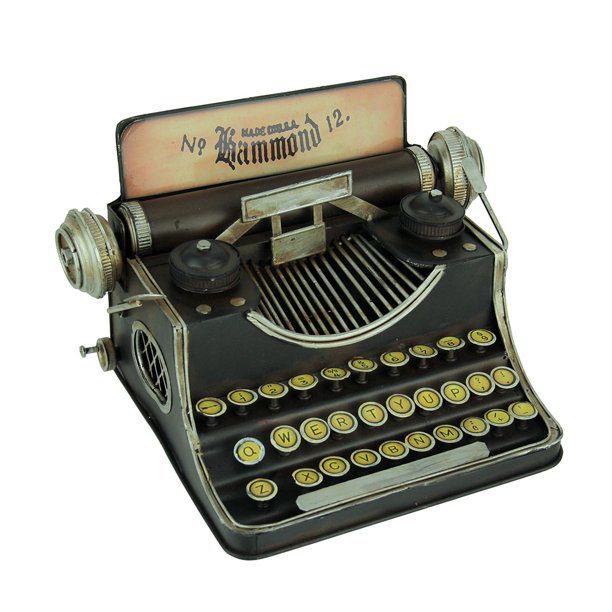Lowcountry Weekly is pleased to announce the winners of the 10th Annual Sea Island Spirit Writers Short Story Contest. This year, the participants were asked to include the words “on the edge” somewhere in their story of 750 words or less. There were so many great entries, we’re glad we didn’t have to serve as judges. That challenge, as always, was handled by the Sea Island Spirit Writers, and we thank them for their service. Thank you, as well, to everybody who entered the contest. And a special congratulations to the winners! Please enjoy the prize-winning stories published below.
WINNERS
1st Place $100
The Smile
by Jack Gannon, Beaufort, SC
2nd Place $50
Endings
by Nancy Murvine, Marco Island, FL
3rd Place $25
The River
by Patricia Moeller, Beaufort, SC
HONORABLE MENTIONS $20
Echoes Ring
by Adam Golob, Panama City, FL
On the Edge of Mother and Child
by Emily Davis-Fletcher, Roanoke, VA
Home
by M.Z. Thwaite, Beaufort, SC
THE SMILE
By Jack Gannon
Shelly entered the bar as she did every night after 9 pm, sat at a bistro table at the front window, and waited for the hostess to attend to her. She enjoyed seeing the bar decorated for Halloween. “Boo,” she mused, mostly to herself. Hostess Jewel arrived at her table with a Bloody Mary, extra spicy with a celery stalk. “Hiya, Shelly,” Jewel said with a bright smile.
Shelly accepted the cocktail, smiling back. “Thank you, Jewel,” she replied. After a quick sip she added, “Perfect as always. But, aren’t you supposed to be off tonight? April’s not sick, I hope.”
“No,” Jewel replied, “Barry decided to be an idiot today, so I asked if I could do an extra shift so I didn’t have to be around him until he got his act together.”
“Ah, I’m sorry.” Another sip. “Why don’t you dump him?”
“He may be a hole, but it takes two incomes for our apartment. Maybe one day I’ll be rich like you…”
Shelly smiled, fingering her long brunette hair behind her right ear. “I wouldn’t exactly say ‘rich’…”
“Well,” said Jewel, “it’s not like everyone comes in here for the same drink night after night at the exact same time.”
“Call me eccentric.”
Jewel started to laugh, but cut herself off. “Oh, geez.”
Shelly noticed her emotional tone. “What is it?”
Jewel nodded toward the front window. “Barry’s coming here.”
Shelly looked out the window. “Want me to have a chat with him?”
“Thanks, but no. He’s not so stupid as to do anything in public. I’ll just let him get his attitude out so I can get back to work…”
Shelly looked toward the kitchen entrance and all the empty chairs. “Big crowd for the show,” she said, sipping again.
Barry, a very muscular man with a brown-hair crew cut, slammed the front door open with almost enough force to break the glass. “JEWEL!!!” he growled. He saw his girlfriend standing at Shelly’s table. “You think you gonna just walk out on me?”
“I was tired of you yelling at me!”
He advanced on her. “I don’t care what you be tired of! You don’t walk out!” He moved fast enough that his backhand slap on Jewel’s face was just a blur to the women. The power of the slap sent Jewel flying into the next bistro set.
Barry took a step toward Jewel’s prone form, but was stopped by Shelly’s sudden grip on his bicep. “I suggest you apologize,” she said gently.
He reached to his bicep with his other hand to remove hers, but found he could not release her grip. “Who you talkin’ to? Let go!”
Shelly rose from her stool, maintaining her grip on his arm. She looked down at Jewel’s unconscious body. “You hurt my girl friend.”
“I knew it!” he said loudly. “I knew she was a lesbo, the way she threw herself at women like you!”
“What? Women like ‘me’?” She increased the pressure on his arm, surprising him with her unexpected strength. “And just what kind of woman do you think I am?”
“Man, you got a grip!” he said. “Look at you: small tight dress showin’ yourself off, showin’ lots legs, you’re just a slut!”
“Oh, Barry, you really have no idea what kind of woman I am,” she said calmly, increasing the pressure of her grip to where he began to buckle at his knees. “You know, Barry, you don’t live as long as I have without dealing with more than a few…idiots.”
Barry was wincing hard at this point. “YARRGH!!!…what do you mean, long as you’ve lived?” He was pulling at her small hand on his bicep, unable to dislodge her grip.
He was half a foot taller than she, yet she easily pulled him to her eye level. As he stared at her, she smiled…and his eyes widened as her upper and lower canine teeth grew over half an inch. “Strong boy, likes living on the edge. But you’re going to live like a good boy from now on, yes?” she said, the threat in her voice powerful. “You hurt her again, I will hurt you worse.” A hiss escaped her fanged mouth. She released her grip, and he stumbled back before running out the door.
Shelly knelt beside the stirring Jewel, helping her to her feet. “Go slow,” she said. “You’re okay now.”
Jewel rubbed her jaw. “Wha-what happened?”
“Let’s just say I got my ‘points’ across to Barry…”
ENDINGS
By Nancy Murvine
I am late. I am frustrated. And Joey should not be sitting here.
“Come on, Pete. This will be the last time your son will be on the boat with you,” Denise had whined. Our eyes locked over our coffee mugs, and I knew I had lost.
Now with the morning downpour, the wipers keep swiping away minute after minute of time we could be shrimping. October, peak season for white shrimp. I have made this run like my father and grandfather before me thousands of times. But today is different. A quick ride out Morgan River, nets in the water for two forty-five-minute drags, the haul poured onto the deck and sorted—all timed to the minute when we will have to be back at the dock on St Helena’s for the appointment with the surveyor.
Joey should not be a part of this. I never wanted my son seeing this business side of the end of my livelihood. He understands that cheap, farmed imports and one too many bad seasons in a row have brought us to this financial precipice, as much as a nine-year-old can comprehend such things. But today’s final run is a reality even I am struggling to comprehend. With the sale of my boat, there will be less than twenty of us left around here. “A dying industry” they call it, a more palatable phrase for outsiders, I imagine, because it omits us humans altogether.
Suddenly, a chain reaction of half a dozen red taillights strobes the near-dawn darkness. The few cars on this stretch of road slow to the crawl of the curious. Joey’s face rises from the glow of the game he plays on his cellphone, focused for the moment on his surroundings. As we near the bend, we both see it. Something– a matted blanket? — on the edge of the road.
“Dad, stop! It’s a dog. Someone hit a dog!”
“Son, we can’t help him. He’s probably dead.” I keep my tone flat and flip my blinker on for the turn-off to the docks at Gay Fish Company.
Joey has cranked his head looking backwards. “Dad, it’s movin’!”
I have no intention of stopping, but as I slow to ease into my turn and rummage for the right platitude about death and dying, Joey flings the door open, ripping at his seatbelt.
“Joey!” I slam the brake and yank on his shirt, but he slips away. “Damn it!” It’s a far-flung curse: to the man who hit the dog, to my wife who forced me to take my son along, to every reason that got me here in the first place.
The car in park and flashers on, I race along the soggy shoulder to where Joey kneels. His left arm cradles the head, his right rests on its heaving side. The angle of the dog’s rear leg is wrong and brings a flashback — the crushed hand of my father’s first mate, the result of an accident I watched unfold when the wings were being hauled in and the winch malfunctioned. I feel the old tightening in my chest, a wave of nausea.
The dog no longer breathes. Joey vomits into the grass.
I slide down next to my son. We both hug our knees into our chests. “Is this what they call a tragedy?” He whispers the innocent question between sniffled sobs. I nod. It is not rain but tears I knuckle away, unashamed. I sit in silent witness of Joey’s tragedy. Of mine. And I am grateful we are here together.
THE RIVER
By Patricia Moeller
The river was muddied. Sticks and leaves floated on its surface, racing towards its confluence where it would press like a thumb into the palm of the sea. A man and a woman, both Roman nosed and broad, sat on a bench, on the edge of a river’s final oxbow. He tossed pebbles into water, their rippled final breaths barely registering as if the river had a hole that could never be filled no matter how many wishes a man could make upon a stone. She watched him though his eyes never strayed toward hers.
“I’d like to go home,” he said.
“But we just got here,” she responded.
Behind them two children passed on the path. One on a scooter, the other running alongside. Their squeals of delight distracted the man and the woman. Both slung their arm over the backrest of the bench in a way only genes could replicate. The girl on the scooter jumped off. The girl running stopped.
“I’ll do this for you,” the girl with the scooter said.
“Then I’ll ride to the next tree so it’s even,” the running girl said.
The children disappeared, as children tend to do, their voices lingering in the empty space as if time could cradle their precious moments, wrapping them in cellophane and red ribbon, ready in wait for moments when tears flowed like rain through beachside pebbles with a thunderous roar.
“That’s all I ever wanted,” she said.
“Who’s to say that isn’t what you got?”
“You’re not hearing me.”
“You’re not saying anything new.”
He stood and searched for the rocks with flattened sides, smooth from friction and time. The best were ringed in white, like God had fitted a wedding band around the granite securing its connection with quartz in perpetuity. He wanted to return to his home, to his wife and kids and the life he’d made without her.
“I want more,” she said.
“Maybe I’m not the brother you want, but I’m the brother you’ve got.” He sighed, tossed a stone into the river. It skipped twice, three times before it sunk.
“Why do you have to be like that? You’ve always been like that; like whatever I say doesn’t matter, like what I want doesn’t matter.”
He shrugged.
She threw up her hands.
What more did she want? Did she even know?
There are holes in the human psyche impossible to fill. There are holes dug by fingernails, too dull to puncture, yet too sharp not to break the skin. There are holes dug by words, too shallow to kill, yet too poignant not to make you bleed. There are holes dug by generations, too long ago to seem relevant, yet not too insidious to forget.
He tossed his final stone, though in his palm was another. “I am who I am,” he said. “I can’t change for you and even if I did, I’d never get it right. You want to hate me, fine. You want to love me, do. But don’t grab me by the throat and sing your praises.”
“You’re an asshole.” She stood to leave, giving him her back.
“You don’t know what I am,” he said, “because you’ve never cared to learn.”
“How could I,” she whirled to face him. Her cheeks alite with fury. “You were never home. Dinner was set on the table. Where were you? Gone! The sun of Christmas morning rose above the skyline. Where were you? Gone! Birthdays? Gone! Any day of the week? Gone! How could I get to know you? You never cared to stay.”
They both sat, one arm slung over the bench and watched the river flow toward the sea wishing they could float on its surface, gaze up at the blue bird sky, and feel free. But the water was muddy and cold, and they weren’t dressed to jump in.







